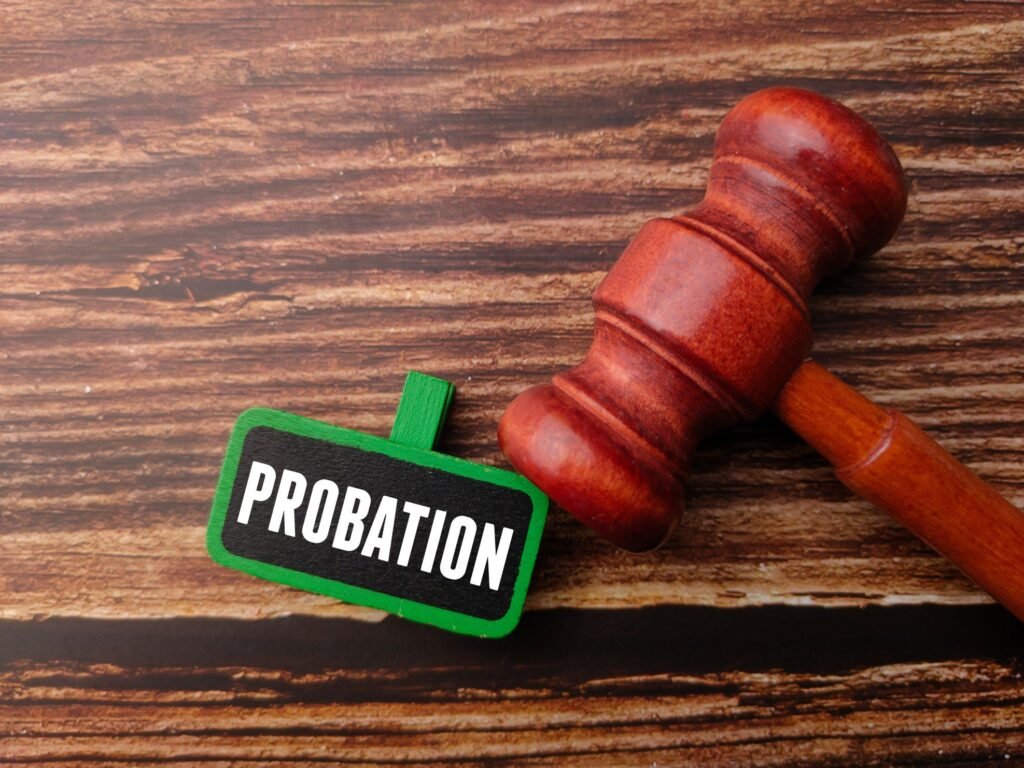Probation is often seen as a second chance, a way to serve a sentence without going to jail. However, violating probation in Florida can quickly turn that second chance into a serious legal problem. A violation can lead to harsh consequences, including jail time, extended supervision, or even revocation of probation. If you or someone you care about has been accused of violating probation, understanding the process and the possible outcomes is essential. In this article, we’ll break down what counts as a violation of probation (VOP) in Florida, the types of violations, the legal process involved, and what a defense lawyer can do to help protect your rights.

Experienced Criminal Defense Lawyer
📞 (772) 828-1143
📧 info@jordizaragoza.com
📍 130 S Indian River Dr, Suite 202, Office 218, Fort Pierce, FL 34950
What Is a Violation of Probation?
Probation is a court-ordered supervision program that allows a person convicted of a crime to remain in the community instead of serving time in jail or prison. In exchange, the individual must follow a set of strict rules imposed by the court.
A violation of probation occurs when the person under supervision fails to follow one or more of those conditions. These conditions vary depending on the case, but commonly include:
- Reporting regularly to a probation officer
- Submitting to drug and alcohol testing
- Not committing new crimes
- Attending court-ordered counseling or classes
- Paying fines, restitution, or court costs
- Abiding by curfews or travel restrictions
Failing to comply with any of these terms intentionally or not can result in a VOP charge.
Types of Probation Violations in Florida
Florida law recognizes two main types of probation violations:
1. Technical Violation
This refers to a breach of the rules that does not involve new criminal activity. Common examples include:
- Missing an appointment with a probation officer
- Failing to complete community service hours
- Not attending required treatment programs
- Changing address without permission
- Positive drug tests
Even though these may seem minor, technical violations can still result in serious consequences depending on the circumstances and the judge’s discretion.
2. Substantive Violation
This occurs when the individual commits a new crime while on probation. In these cases, the person is not only facing charges for the new offense but also for violating the terms of their probation.
Substantive violations are generally treated more severely because they suggest a continued pattern of unlawful behavior.
What Happens After a Violation Is Alleged?
Once a probation officer believes a violation has occurred, they can submit an affidavit of violation to the court. If the judge agrees, a warrant will usually be issued for the probationer’s arrest. From there, the legal process unfolds as follows:
1. First Appearance / VOP Hearing
The individual is brought before a judge, where the alleged violation is reviewed. Unlike criminal trials, probation hearings do not require proof “beyond a reasonable doubt.” Instead, the standard is a “preponderance of the evidence” a much lower threshold.
2. No Right to Bond
In many probation violation cases, especially for felony offenses, the person may not be entitled to bond. This means they may stay in jail until their case is resolved unless a judge grants a bond motion.
3. Outcome of the Hearing
After reviewing the evidence and hearing arguments from both sides, the judge may:
- Dismiss the violation if there’s insufficient evidence
- Modify probation by adding new conditions or extending its duration
- Revoke probation and impose the original jail or prison sentence
- Reinstate probation under the same or modified terms
Consequences of Violating Probation
Violating probation doesn’t just reset the clock; it can make the situation worse.Depending on the severity and nature of the violation, the judge may:
- Order jail or prison time, up to the maximum sentence for the original offense
- Extend the length of probation
- Add more restrictive conditions (e.g., house arrest, GPS monitoring)
- Require additional fines or community service
- Revoke probation entirely
For instance, someone originally sentenced to probation instead of 5 years in prison could be sent to prison for the full 5 years if their probation is revoked.
Defenses to a Probation Violation
Being accused of a probation violation is not the same as being found guilty of one. You have the right to a hearing and the right to present a defense. Some common defenses include:
1. Lack of Willful Violation
If the violation wasn’t intentional—like missing a meeting due to a medical emergency it may not warrant revocation. Florida courts look at whether the violation was willful and substantial.
2. Mistaken Identity or Error
Sometimes the alleged violation is based on a misunderstanding, false positive drug tests, or clerical errors. An attorney can investigate the facts and correct inaccuracies.
3. No New Conviction
In cases of substantive violations, a new conviction is not necessary to revoke probation but showing that the new charges are weak or unsupported can still influence the judge’s decision.
How a Defense Lawyer Can Help in a VOP Case
Violation of probation hearings are different from regular criminal trials. There’s no jury, the rules of evidence are relaxed, and the judge has broad discretion. That’s why having an experienced defense attorney is critical.

A defense lawyer can:
- Review the facts and evidence of the alleged violation
- Challenge technical violations that lack substantial proof
- Negotiate with the prosecutor for alternative penalties or reinstatement
- File motions for bond or early release
- Present mitigating factors like employment, family obligations, or rehabilitation efforts
Legal Help in Fort Pierce, Florida
If you’re facing a probation violation in Fort Pierce, Florida, time is of the essence. The sooner you speak to a criminal defense attorney, the better your chances of a favorable outcome.
Experienced Criminal Defense Lawyer
📞 (772) 828-1143
📧 info@jordizaragoza.com
📍 130 S Indian River Dr, Suite 202, Office 218, Fort Pierce, FL 34950
With extensive experience in Florida’s criminal courts, Attorney Jordi Zaragoza understands the complexities of VOP cases. Whether it’s a technical violation or a new criminal charge, he works to ensure every client’s side of the story is heard and their rights are protected.
